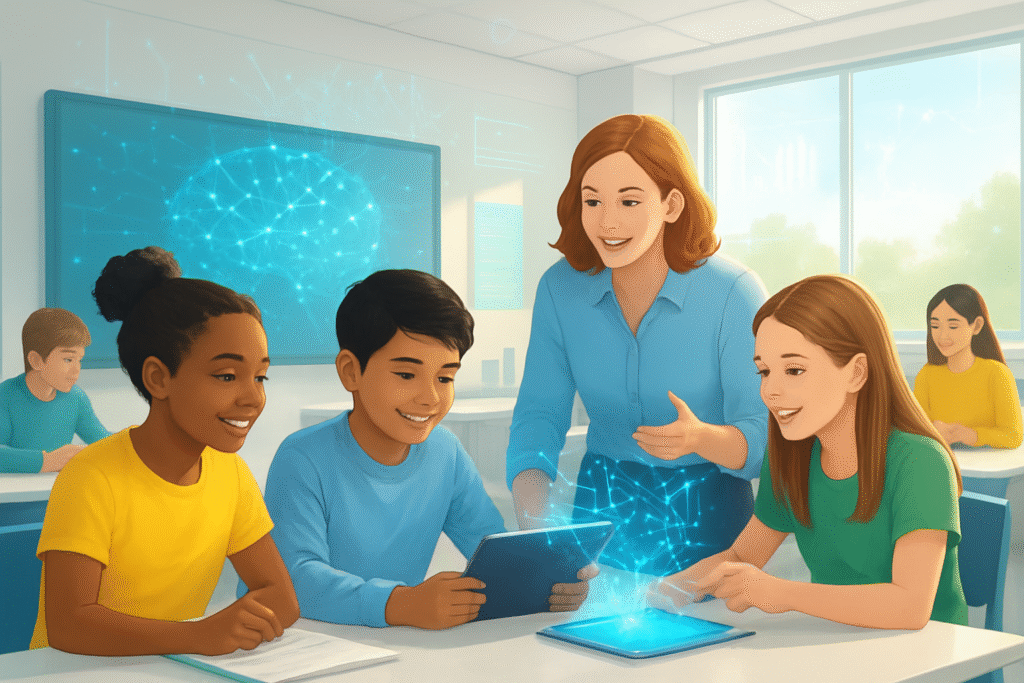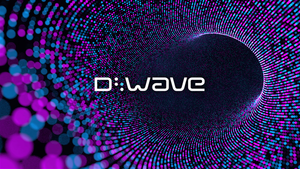
In an era increasingly shaped by the rapid advancements of artificial intelligence, a distinct and compelling philosophy is gaining traction within the educational technology landscape: the 'non-transhumanist vision' for AI in education. This approach champions the use of AI as a powerful tool for human edification and flourishing, focusing intently on honing students' skills, personalizing learning experiences, and significantly improving educational outcomes – all without veering into the realm of radical human augmentation or the pursuit of transcending natural human capabilities. It posits AI not as a replacement for human intellect or connection, but as a sophisticated assistant designed to amplify existing human potential and enrich traditional learning processes.
This humanistic framework emerges as a crucial counter-narrative to more speculative, transhumanist applications of AI, which often explore merging human biology with technology. Instead, the non-transhumanist vision grounds itself in the practical and ethical integration of AI to cultivate more vibrant, knowledgeable, and capable individuals. Its immediate significance lies in offering a responsible and ethically sound pathway for AI adoption in schools and universities worldwide, addressing pressing educational challenges while safeguarding the invaluable human elements of teaching and learning.
AI as an Educational Amplifier: Technical Deep Dive into Human-Centric Learning
The technical underpinnings of the non-transhumanist vision for AI in education are characterized by sophisticated algorithms and learning models designed to understand and adapt to individual human learners. Unlike transhumanist concepts that might envision direct neural interfaces or genetic modifications, this vision leverages existing and emerging AI capabilities to create highly personalized and efficient learning environments. Key advancements include advanced adaptive tutoring systems, intelligent content recommendation engines, and sophisticated natural language processing (NLP) models.
Adaptive tutoring systems, for instance, utilize machine learning to assess a student's current knowledge level, identify specific learning gaps, and then dynamically chart an optimal, personalized learning trajectory. These systems can provide real-time, one-on-one support, offering tailored explanations, practice problems, and feedback. This differs significantly from older computer-assisted instruction (CAI) by employing predictive analytics and deep learning to understand nuanced student interactions, rather than relying on predefined rules. Similarly, NLP-powered tools can analyze student writing, provide constructive feedback on grammar, style, and coherence, or even facilitate Socratic dialogue, encouraging critical thinking and deeper engagement without the need for biological augmentation.
Initial reactions from the AI research community and industry experts have been largely positive, recognizing the ethical robustness and practical applicability of this vision. Researchers commend the focus on human-AI collaboration, where AI frees up teachers from administrative burdens like lesson planning, IEP drafting, and report writing, allowing them to dedicate more time to mentorship and meaningful student engagement. This approach is seen as a more sustainable and equitable path for AI in education, contrasting sharply with approaches that might exacerbate digital divides or raise profound ethical questions about human identity and autonomy. The emphasis on transparency, data privacy, and avoiding algorithmic bias is also a critical technical and ethical differentiator, ensuring that AI serves all learners responsibly.
Corporate Strategy: Ed-Tech Giants and Startups Embrace Human-Centric AI
The non-transhumanist vision for AI in education presents a significant strategic pivot and growth opportunity for a wide array of companies, from established tech giants to agile ed-tech startups. Companies like Google (NASDAQ: GOOGL), through its Google for Education suite, and Microsoft (NASDAQ: MSFT), with its various educational tools and AI services, are well-positioned to benefit. Their existing cloud infrastructure, AI research capabilities, and vast user bases allow them to integrate AI-powered adaptive learning, personalized feedback, and teacher support features into widely adopted platforms like Google Classroom and Microsoft Teams. The focus on enhancing existing human skills rather than replacing them aligns perfectly with their enterprise and educational software strategies.
Competitive implications are substantial. Major AI labs, including those within OpenAI (private) and Anthropic (private), are increasingly developing large language models (LLMs) and conversational AIs that can be fine-tuned for educational applications. These models are crucial for developing sophisticated intelligent tutoring systems and personalized content generators. Companies that can effectively integrate these powerful AI models into user-friendly, ethically sound educational products will gain a significant market advantage. This vision also mitigates some of the public relations risks associated with more controversial, transhumanist AI applications, making it a safer and more appealing investment for publicly traded companies.
For startups, this non-transhumanist approach opens doors for innovation in niche areas. Companies specializing in AI-driven assessment tools, accessible learning platforms for diverse learners, or AI assistants for teachers are poised for growth. The potential disruption to existing products and services lies in the obsolescence of generic, one-size-fits-all educational software. The market is shifting towards highly personalized, adaptive solutions that demonstrate clear improvements in learning outcomes and teacher efficiency. Strategic advantages will go to companies that prioritize ethical AI development, robust data privacy, and a genuine understanding of pedagogical principles, ensuring their AI tools genuinely support human learning and teaching, rather than merely automating tasks.
Broadening Horizons: AI's Role in a Responsible Educational Future
This non-transhumanist vision fits squarely into the broader AI landscape as a testament to the growing maturity and ethical considerations within the field. It reflects a trend towards "responsible AI" and "human-centered AI," where the focus shifts from simply demonstrating technological capability to ensuring AI serves human well-being and societal progress. The impacts are profound, promising to democratize access to high-quality, personalized education, and potentially reducing educational disparities. By offering tailored support, AI can address the unique needs of diverse learners, including neurodiverse students and those with physical disabilities, through customizable interfaces, real-time captioning, and text-to-speech functionalities.
However, potential concerns remain, primarily around data privacy, algorithmic bias, and the risk of over-reliance on technology. Ensuring that AI systems are developed with diverse datasets to avoid perpetuating existing biases is paramount. Additionally, robust data governance frameworks are essential to protect sensitive student information. This approach, while transformative, also necessitates a re-evaluation of teacher training to equip educators with the skills to effectively integrate and leverage AI in their classrooms, maintaining their irreplaceable role in fostering critical thinking, social skills, and emotional intelligence.
Compared to previous AI milestones, such as the breakthroughs in image recognition or game-playing AI, this educational vision emphasizes a more subtle yet deeply impactful application. It moves beyond tasks that AI can perform better than humans to tasks where AI can make humans better. It echoes the initial promises of educational technology from decades past but delivers on them with unprecedented precision and personalization, leveraging the power of modern machine learning to create genuinely adaptive and responsive learning environments. The focus is on fostering the "fuller, more vibrant versions" of students, aligning with the timeless goals of education rather than speculative futures.
The Road Ahead: Evolving Applications and Ethical Imperatives
The near-term developments for the non-transhumanist vision in AI education will likely see a continued refinement of adaptive learning platforms, with more sophisticated AI models capable of understanding complex pedagogical concepts and providing even more nuanced feedback. Expect to see AI-powered tools that can help students develop not just academic knowledge, but also critical soft skills such as communication, collaboration, and creative problem-solving through interactive, AI-guided simulations and projects. Furthermore, the integration of generative AI to assist teachers in creating diverse, engaging, and accessible learning materials will become more commonplace, significantly reducing preparation time.
Long-term, experts predict AI will become an invisible, ubiquitous assistant throughout the learning journey, seamlessly providing support without distracting from the core educational content. Potential applications on the horizon include AI systems that can predict learning difficulties before they manifest, offering proactive interventions, and AI tutors capable of engaging students in extended, Socratic dialogues that foster deep conceptual understanding. The development of AI tools specifically designed to support socio-emotional learning and mental well-being in students is also a promising area.
However, several challenges need to be addressed. Scalability and equitable access to these advanced AI tools remain critical. Ensuring that all students, regardless of socioeconomic background, can benefit from these innovations will require significant investment and policy development. Ethical guidelines around AI's influence on curriculum design, student autonomy, and the potential for surveillance must be continuously refined and enforced. Experts predict a future where AI acts as a highly personalized academic coach, mentor, and administrative assistant, transforming the educational experience, but always under the watchful guidance of human educators and within a robust ethical framework that prioritizes human flourishing over technological transcendence.
A New Dawn for Education: AI as Humanity's Ally
The emergence of the non-transhumanist vision for AI in education marks a pivotal moment in the integration of artificial intelligence into societal institutions. It represents a mature and ethically grounded approach, moving beyond the sensationalism of AI's more radical applications to focus on its profound potential to uplift and empower human learners. The key takeaway is clear: AI in education, when guided by principles of human edification and collaboration, can be a transformative force, enhancing skills, personalizing learning, and dramatically improving educational outcomes without compromising the essence of human identity or the invaluable role of human connection.
This development holds immense significance in AI history, demonstrating a growing commitment within the tech community to responsible innovation and the application of powerful technologies for demonstrably positive human impact. It serves as a blueprint for how AI can be a true ally in human development, rather than a speculative path to a post-human future. The long-term impact will likely be a more equitable, efficient, and engaging educational system that better prepares individuals for a complex and rapidly evolving world.
In the coming weeks and months, watch for increased adoption of AI-powered adaptive learning platforms in K-12 and higher education, further development of AI tools designed to support teacher workloads, and ongoing public discourse around the ethical implementation of AI in learning environments. The focus will remain on how AI can help every student become a fuller, more vibrant version of themselves, reaffirming that the most powerful technology is that which amplifies humanity.
This content is intended for informational purposes only and represents analysis of current AI developments.
TokenRing AI delivers enterprise-grade solutions for multi-agent AI workflow orchestration, AI-powered development tools, and seamless remote collaboration platforms.
For more information, visit https://www.tokenring.ai/.





